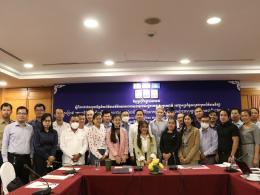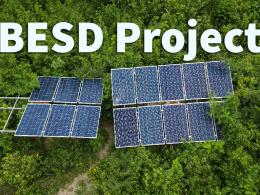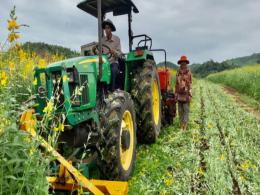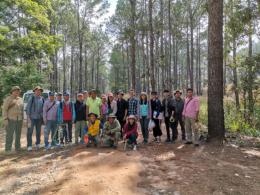Promote the Development of Urban and Rural Settlements Resilient to Climate-Induced Disasters
Background
Climate change affects the livelihoods of low income communities whose settlements are often devastated by the impacts of climate change. The poor communities usually cannot afford to purchase resilient houses to withstand the impacts of severe storms or high water levels associated with flooding.
The temporary, informal settlements constructed with materials with appropriate specification are not built to be resilient to climate hazards. Some older permanent settlement areas are also exposed to the climate-induced risks associated with changes that occur in surrounding areas, especially in upstream areas. Therefore, the construction of low-cost, safe, resilient housing represents the most effective means for resolving the resilient housing conditions of poor people.
Overall Objective
Promote the rural and urban low cost, safe, resilient houses for vulnerable households to adapt to climate change impacts.
Expected Results
MLMUPC staff at national and sub-national level and all relevant stakeholders have improved knowledge on resilient housing and climate change.
Local authorities, the private sector and communities are able to identify appropriate locations and options for low-cost resilient housing construction.
People are aware about climate change adaptation and appropriate ways to access adequate housing through other financing frameworks for constructing or improving houses.
Location
Preah Sihanouk, Tbong Khmum, and Kratie provinces
Approach
Resilient housing programs have been implemented by organizations such as UN Habitat, Habitat for Humanity, and Caritas Cambodia, but no official technical guidelines or national standards have yet been developed and approved to be resilient to climate change impacts. The General Department of Housing, as the government institution responsible for housing, has the mandate to develop a standard of technical guideline with a low-cost resilient housing and will build on these previous experiences to develop the guidelines and related trainings, apply them in demonstration sites and build awareness with potential financing institutions.






